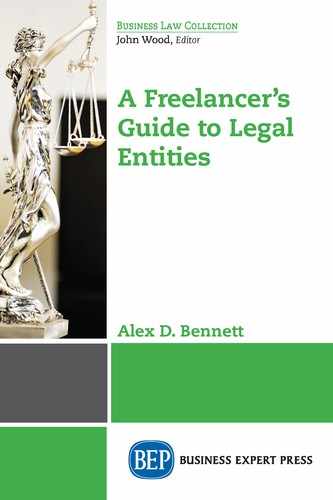Businesses are increasingly turning to freelancers to supply services that used to be provided by full-time employees or larger consulting firms. As a consequence, freelancing has become a dynamic, sophisticated, and potentially lucrative career choice. With these opportunities comes greater risk, as freelancers begin working in litigious industries and on projects with high dollar value. Many freelancers think about forming a limited liability entity, such as a corporation or limited liability company (LLC), as one way to manage their risk. But the decision about whether or not to form an entity, and what kind of entity is best, isn’t necessarily easy, especially once the freelancer starts digging into the cloud of legal issues that surrounds organizing and managing a legal entity.
This book is a concise guide to business entities and related legal topics in the United States, designed specifically to help freelancers make informed decisions about how to structure and run their businesses. The goal is to provide freelancers with a framework for analyzing business risk before delving into the basic principles of sole proprietorships, LLCs, and corporations. We’ll also explore important topics that every small business owner should understand: how limited liability works, legal issues related to business names, taxes, and contracts.
Keywords
business law, business naming, business organizations, contracts, corporation, corporate governance, freelancer, legal entities, liability, limited liability company, risk management, tax, trademark,
